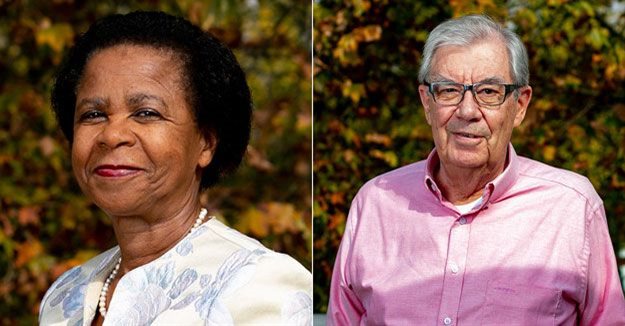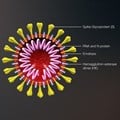The crisis of the Covid-19 pandemic offers our country an opportunity to recapture the spirit of ubuntu demonstrated by empathy, responsibility and solidarity.

Mamphela Ramphele and George Lindeque, cofounders of ReimagineSA
The "social distancing" required to limit the spread of the virus needs to be complemented by closer emotional bonds – ubuntu – with our fellow citizens who are more vulnerable than we are, particularly those without the basics essential for self-protection.
The Covid-19 pandemic is simply one of many crises that humanity is likely to face, given our disregard for boundaries, and disrespect of taboos our ancestors maintained to keep humans safe from disruptive viruses and bacteria. Climate change emergencies such as fires, floods and droughts are here to stay until we change our destructive behaviour as a human race. Our emergency responses need to embrace behavioural changes essential to laying the foundations of becoming better global citizens and caring for our environment.
Spare a thought for Koko Mamokoena
As we go about our daily lives responding to emergency measures to protect ourselves and loved ones, let us spare a thought for Koko Mamokoena in the village of Mothothoane in North West Province. She has no running water in her makeshift home and depends on unreliable polluted communal tap water. To add insult to injury, she has been ignored for months by her ward councillor and municipality when reporting the sewerage flowing in what passes as a street. How can we expect her to wash her hands multiple times daily for at least 20 seconds at a time in the context of her reality?
Koko Mamokoena is a metaphor for the stark reality that 60-80% of our fellow citizens who have yet to enjoy the basic socio-economic rights afforded them by our human rights Constitution. How long are we prepared to defer their dreams of safety, dignity and wellbeing? What is the cost of this deferral? Not just for them, but for all of us given that this is an equal opportunity crisis that affects every age, class, and gender in life?
Considering the “have nots”
Then there is the matter of ignorance and confusion. Shalate Ngobeni (a real case study) runs an orphanage and children’s daycare centre in Olievenhoutbosch, Centurion, in Gauteng where parents and others voiced their concerns. The thought of the virus coming near their doorstep was a foreign concept as they thought only the elite were carriers of this one. When the government announced the decision to close educational institutions, they questioned whether the “have nots” were considered. Where does that leave the children of the general workers who are meant to still work during this state of emergency? It was clear these safety precautions were thought through for everyone except those who will really be affected – people in disadvantaged communities. Fortunately for them, the centre has put measures in place to assist the children and parents, however, that’s not the case for most of the affected. Here is an opportunity to support and assist the many dedicated, hardworking and under-resourced Shalates throughout the land.
Paying attention to basics
The good news is now that our president has focused government’s attention on working together across bureaucratic boundaries and preparing the nation to tackle this crisis, the chances of success have improved. Lowering the burden of disease through prevention, testing and treatment of those affected is as good an opportunity as any for the president to demand change in behaviour and greater attention to ensure that basic needs of citizens are met. Paying attention to basics at local, municipal, provincial and national levels is the best guarantee of building the resilience needed for our nation to emerge from this emergency stronger together.
The coronavirus crisis also compels us to reimagine teaching and learning, while enhancing the outcomes of our poorly performing education system. Twenty-first century education should prepare young people to use multimedia to learn, share knowledge and become critical thinking global citizens. Imagine if Unisa, with its extensive distance education infrastructure, were to partner with its sister institutions to digitise content, as MIT and Harvard have done, to ensure continuity of teaching and learning. Online learning is the future. Breaking up the monopolies that keep data costs high should be part of the disaster response of our nation to increase access to data for all students – urban and rural, poor and wealthy.
Revamping healthcare
The crisis we face also presents a great opportunity to revamp our fragile healthcare system. It is as good a moment as any to forge stronger public-private partnerships based on the promotion of the greatest common good. Maximisation of profits by the private sector and abuse of power by public officials for personal gain should be replaced by solidarity and wellbeing for all considerations. We have enough expertise and experience among our healthcare workers, backed by a strong science and technology base, to build our healthcare system into a highly efficient and effective equitable system accessible to all.
It is at times like these that bold, creative leadership is needed to take us beyond the crisis, and to ensure that we emerge wiser and more resilient. We must seize this moment to learn to work together and make the just transition to a post-fossil fuel world that promotes the wellbeing of people and the planet.
Let’s make it South Africa’s moment!




































